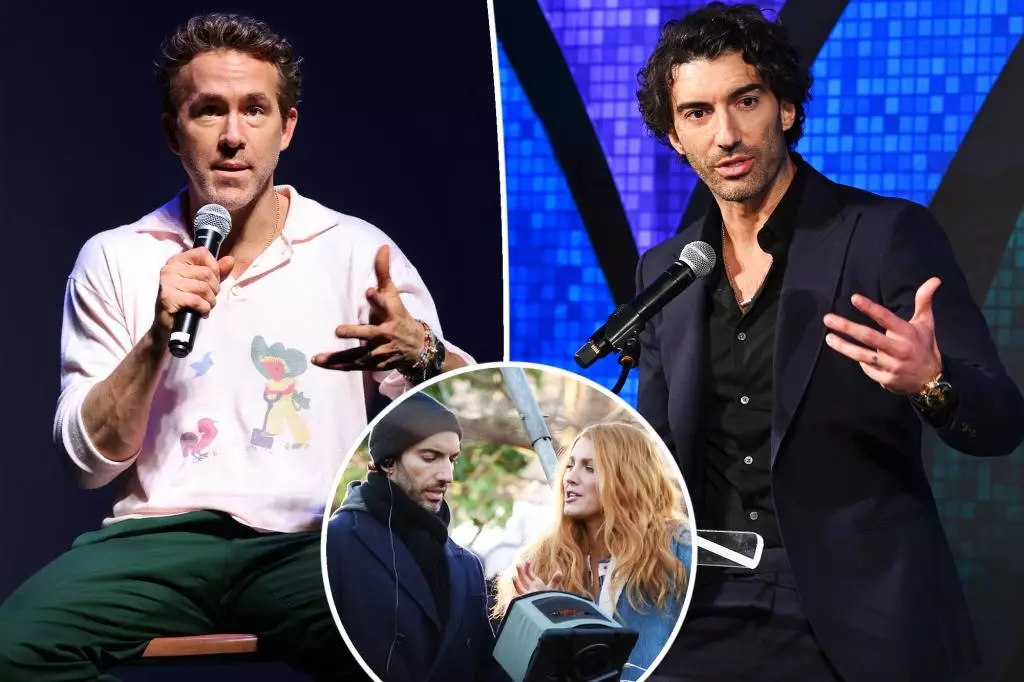The glitz and glamour of Hollywood often obscure the underlying tensions and complexities of its interpersonal relationships. The recent tension between Ryan Reynolds and Justin Baldoni exemplifies this stark reality. Allegations of sexual harassment levied by actress Blake Lively against Baldoni have shed light on a series of events that appear to have taken place months prior, suggesting a deeper rift fueled by both personal and professional complexities. This article delves into the intricacies surrounding these allegations, their implications for those involved, and the broader conversation about workplace culture in the entertainment industry.
In an era where social media shapes public perception and communication, the act of blocking someone on platforms like Instagram can carry significant weight. Reports indicate that Ryan Reynolds allegedly blocked Justin Baldoni and his production company, Wayfarer Studios, creating a digital chasm that not only signifies personal discord but also hints at professional ramifications. Baldoni’s concerns about Lively potentially mirroring Reynolds’ actions depict a mounting anxiety regarding their collaborative dynamics, emphasizing how intertwined personal relationships can become in high-stress professional environments.
As Baldoni expressed to his publicist, planning for Lively’s possible social media fallout was crucial for his peace of mind. This situation illustrates how vulnerable individuals may feel amidst a web of rumors and conflicts, particularly when their career trajectories are impacted. The lack of social media connection between Lively and Baldoni suggests a fragile working relationship that may have been exacerbated by the controversies surrounding their film, “It Ends With Us.” In contrast, the lingering presence of Lively’s online connection to Reynolds, despite them not following Baldoni, paints a picture of selective alliances that cloud the public’s understanding of their relationships.
The gravity of Lively’s allegations against Baldoni intensifies the narrative significantly. She has accused him of engaging in behavior that created a hostile work environment, generating discomfort and fear during the filming process. Such claims point to a pressing issue that often plagues the entertainment industry—sexual harassment and the feedback loop of silence that tends to accompany it.
According to the details shared in the complaint, Lively took significant steps to address what she deemed inappropriate behavior. She reportedly organized an “all-hands” meeting to set firm boundaries. Her demands included a cessation of discussions surrounding his past addictions and personal life – subjects that would naturally disturb a working relationship, particularly in a setting that should foster creativity and collaboration. Moreover, the allegations that Baldoni disregarded initial agreements regarding content in the film further complicate the matter, blurring the lines between artistic expression and appropriateness in a professional setting.
The Legal Fallout and Industry Implications
Baldoni’s defense through legal means, which labels Lively’s accusations as “categorically false,” is indicative of the immense pressures actors and directors face in an increasingly scrutinized industry. His attorney’s dismissal of the claims as “outrageous and intentionally salacious” reflects a wider concern about how narratives surrounding misconduct can spiral into public spectacles, damaging careers and reputations. The involvement of a crisis manager, as reported, suggests a troubling reality—where defensive measures have become a necessity to navigate the challenging landscape of public relations and personal accusations.
Amidst these back-and-forth allegations, Lively’s statement regarding her aim to expose “sinister retaliatory tactics” against those who dare to speak out underscores a critical moment in Hollywood’s ongoing struggle with accountability and support for survivors of misconduct. The broader implications of her complaint echo the larger #MeToo movement—bringing awareness to power imbalances in the workplace while advocating for safer environments.
The intersection of personal relationships and professional collaborations in Hollywood raises fundamental questions about the industry’s culture. The ease with which disputes escalate into public accusations teaches us necessary lessons about transparency, accountability, and the importance of maintaining professional boundaries. As the industry grapples with ongoing discussions of consent, power dynamics, and the role of social media, it is crucial to remain vigilant in ensuring that those who use their voices against misconduct receive the support and protection they require.
Ultimately, the saga between Reynolds, Baldoni, and Lively serves as a significant case study; revealing the complexities of human relationships in a high-stakes environment where public perception can easily dictate personal and professional fates. The unfolding repercussions will surely be a focal point of discussion moving forward as this narrative continues to evolve.

